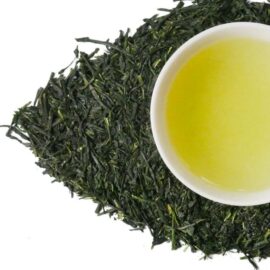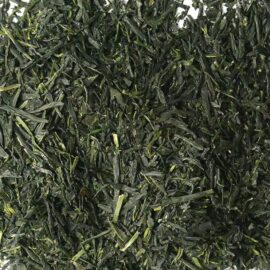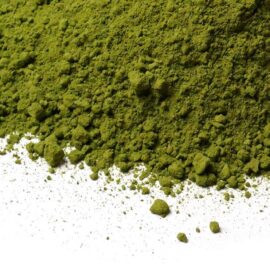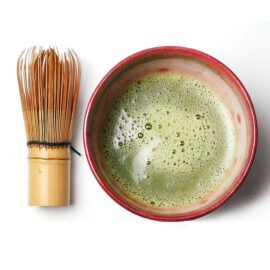-
- Rated 5.00 out of 5
Sencha Kagoshima, Japanese green tea (No. 600)
- Translation from Japanese: Green tea Place, date of production: Kagoshima Prefecture, spring 2024 Type: Green tea Appearance: curled small leaves resembling needles, crushed leaves added Aroma: fresh, citrus, herbal Taste: soft, sweet, creamy Aftertaste: long, light Infusion color: light green, azure The most suitable vessels for brewing: faror gaiwan, thin-walled clay teapot
- 690₴ /50g
- Select options This product has multiple variants. The options may be chosen on the product page
-
- Rated 5.00 out of 5
Japanese powdered tea Matcha or Matcha for cocktails
- Type: Powdered Japanese tea from YAMAMA MASUDAEN factory Place, date of production: Japan, Shizuoka, 2023 Appearance: Powdered green tea Infusion color: green with light foam Aroma: herbaceous, warm Taste: nutty, herbaceous with bitterness Aftertaste: nutty, warm
- 1 170₴
- Add to cart
In Japan, mainly green teas are produced from the leaves of the tea bush of the Camellia sinensis family (Camellia sinensis). Used varieties of tea bushes Yabukita, Okuhikari, Sayamakaori.
The main places where tea bushes grow in Japan are the Uji region near Kyoto, Kumamoto Prefecture, Saga, Shizuoka and Fukuoka.
For the production of green tea, the Japanese method of stopping fermentation is used by steaming raw materials with hot steam. The tea leaves and stems are then dried with tossing in the process. When dried, the leaves break under their weight and curl a little.
Depending on the sorting of the steamed and dried raw materials, Sencha or Gyokuro tea is obtained from whole twisted leaves. From whole large and flat tea leaves – Atamacha, from stems – Kukicha (Karigane), from buds – Mecha, from crumbs – Konach.
Matcha (抹茶) is a powdered green ceremonial tea. Produced by grinding Tencha tea with granite millstones. Used in the Japanese tea ceremony to make koitcha and usucha tea by whipping with a bamboo whisk. In most industries, an electric motor is attached to the stone millstones. In an hour, one millstone grinds about 40 grams of tea. 45 minutes work, 15 minutes rest. Since the millstone heats up during operation and its temperature changes, a break is required.
Matcha tea is indeed very labor intensive to produce. It can also vary greatly in taste depending on plantation and production.



